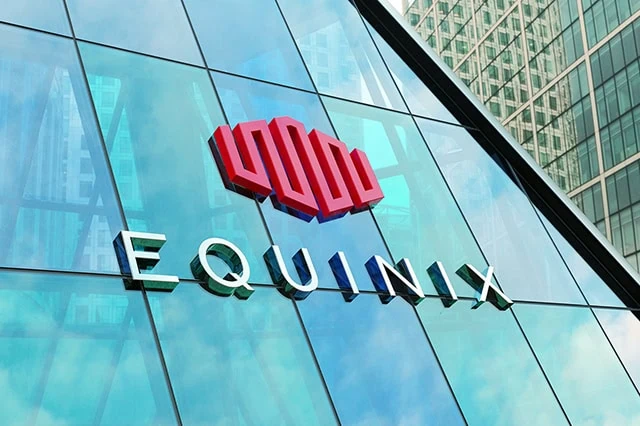Finding the best REITs to invest in requires more than just an understanding of the real estate market.
REITs—short for “real estate investment trusts”—are fundamentally about property. However, the best REIT stocks often specialize in a particular corner of the real estate market, and are impacted by more than just mortgage rates or national real estate trends.
Furthermore, many investors believe the best REIT stocks provide dividend growth over time. That means looking beyond the short-term trends to make the most of long-term income potential.
Here are the basics of real estate investment trust investing, and how to find the best REIT stocks to buy.
Disclaimer: This article does not constitute individualized investment advice. Securities, funds, and/or other investments appear for your consideration and not as personalized investment recommendations. Act at your own discretion.
What Are Real Estate Investment Trusts (REITs)?
A real estate investment trust, often referred to as a REIT, is a unique class of investment made up of companies that own (and sometimes operate) real estate-related assets.
Breaking down the name “real estate investment trust” is a good way of helping people understand how this business works:
The first two words (“real estate”) describe the business focus. REITs must derive at least 75% of their gross income from real estate-related income, and 75% of their assets must be real estate-related assets. And if you wonder why I keep saying “related,” that’s because REITs don’t always have to own physical properties—they can own real-estate related assets such as mortgages, too.
The last two words, “investment trust,” are important to understanding REIT ownership. There are certain thresholds that set REITs apart from conventional publicly traded company stocks. For instance, they must have at least 100 shareholders, and they can have no more than 50% ownership resting in the hands of five or fewer investors.
But perhaps the most important rule you need to know about real estate investment trusts is that they must pay at least 90% of taxable income to shareholders in the form of dividends each year. This mandate for income explains’ REITs typically above-average dividend yields. And those yields are one of the biggest selling points to investors.
2 Types of REITs to Know
The REIT universe is sometimes divided into two distinct flavors: equity REITs and mortgage REITs.
While they both deal in real estate, they’re two vastly different businesses and pretty dissimilar investments that can sometimes have very disparate reactions to the same outside forces.
In other words: Investors should know the difference between the two.
Equity REITs
“Equity” is shorthand for a few things, among them “ownership,” typically in a financial asset or company. You’ll frequently hear “equities” used as another term for “stocks,” as a company’s stock represents an ownership stake in that business.
Equity REITs, then, are directly invested in real estate assets. They own or manage properties ranging from office buildings to shopping centers to apartment complexes, leasing that space and generating income from the rents. And publicly traded equity REITs allow you to enjoy that exposure through their shares, which you can purchase through any traditional brokerage account.
Mortgage REITs
Mortgage REITs (or mREITs), on the other hand, don’t traffic in real estate properties—instead, they deal with debt.
Mortgage REITs finance real estate, operating less like a traditional REIT and more like a financial firm. This is done by either originating mortgages, or buying and selling those mortgages and related mortgage-backed securities. The business also commonly involves borrowing heavily to then trade all that mortgage paper at scale. An mREIT’s profits, then, tend to revolve around net interest income (NII): the difference between the interest revenue they generate and the financing costs on all their assets.
This fundamentally makes mortgage REITs riskier than equity REITs. After all, the 2008 financial crisis was caused in large part by financial firms borrowing heavily to invest in the debts of third parties. Particularly in the current interest rate environment, where borrowing is getting steadily more expensive all around, that’s a tough spot to be in.
That said, many mREITs offer twice or even thrice the income potential of equity REITs. These dividends might be at risk of evaporating if things go south, but if they hold up, investors will be richly rewarded for looking beyond the conventional players on Wall Street.
Do you want to get serious about saving and planning for retirement? Sign up for Retire With Riley, Young and the Invested’s free retirement planning newsletter.
The Best REITs to Invest In
You already might be wondering how to decide between mortgage REITs or equity REITs, or whether you should invest in a small commercial real estate firm or a big industrial park operator. After all, there’s a great big world of real estate investing out there!
The answer is: There is no one right answer for everyone. With so many things on Wall Street, your unique risk tolerance and retirement planning needs are critical to deciding the best REITs to invest in.
The following list should get you pointed in the right direction, however. All seven of these leading real estate investment trusts offer significant income and the potential for long-term upside if things pan out in 2025 and beyond.
All REITs listed in order of yield, from smallest to largest.
Best REIT #1: Equinix

- REIT industry: Datacenters
- Market capitalization: $80.8 billion
- Dividend yield: 2.3%
Equinix (EQIX) is an attractive REIT for investors looking for a play on megatrends including cloud computing, big data, and artificial intelligence.
EQIX is the largest global data center and colocation provider for enterprise networks. In other words, Equinix is responsible for the actual server rooms that house all the bits and bytes that power all the content and software we offload to “the cloud” without really considering where the cloud is.
Considering the fact that cloud-based software is now just the normal way of doing business, that creates a massive opportunity for Equinix as one of the largest specialized firms in the space. This digital infrastructure provider boasts almost half a million connections to more than 10,000 customers, with a global reach of 75 metro areas in 35 countries. Those numbers will surely grow, with the company currently working on 59 projects in 24 countries.
“Equinix sits at the epicenter of most of the world’s internet traffic and is exposed to strong secular tailwinds involving hybrid IT and digital content,” says Stifel analyst Erik Rasmussen, who rates the stock at Buy. “We view EQIX as a core holding for both tech-focused and real estate investment portfolios as its business model captures a desirable mix of growth and stable recurring cash flows, which should drive a high single-digit, low-double-digit dividend [compound annual growth rate] for years to come.”
Indeed, despite what its below-sector-average yield of 2.3% might otherwise indicate, Equinix has been downright aggressive in sharing its wealth with EQIX holders. The payout has grown by nearly 180% over the past 10 years … it’s just that the shares have risen even more rapidly. Equinix’s stock is up 190% on a pure price basis in the past decade. Including dividends, shareholders have enjoyed a 255% total return.
Related: 7 Best High-Dividend ETFs for Income-Minded Investors
Best REIT #2: Ventas

- REIT industry: Medical and senior housing
- Market capitalization: $31.7 billion
- Dividend yield: 2.8%
Ventas (VTR) is one of the market’s largest health care REITs, boasting more than 1,400 properties in the U.S., Canada, and the U.K. This includes more than 850 senior housing communities, with the rest spread across outpatient medical, research, hospitals, long-term acute care, in-patient rehabilitation, and skilled-nursing facilities.
In short, Ventas sits at the intersection of a number of “necessary” health care properties.
COVID affected real estate operators of all stripes, though Ventas was among the hardest-hit, with VTR stock losing roughly three-quarters of its value in less than two months as residents fled its senior housing and skilled-nursing facilities. That prompted its push into medical office real estate, which provided some stability. But the demographics that lifted senior housing and nursing operators certainly didn’t disappear, and now those properties are back in the spotlight.
Ventas is also maximizing its senior housing properties by converting many of them from triple-net lease (NNN)—where tenants are responsible for taxes, maintenance, and insurance, and Ventas just cashes a check—to its more actively managed Senior Housing Operating Portfolio (SHOP). These SHOP properties have so far been a significant driver of net operating income (NOI). Indeed, Ventas believes SHOP’s cash NOI will grow between 12% and 16% in 2025 (and that guidance is better than it was a few months ago).
“Ventas SHOP assets include independent living, assisted living, and memory care environments, many with high-end amenities which add pricing power,” Argus Research analyst Marie Ferguson (Buy) says.
As mentioned before, Ventas was crushed during COVID, forcing the company to slash its dividend from 79¢ per share to 45¢, where it remained for years. However, in Q1 2025, the company finally delivered positive movement, announcing a 6.7% hike to the payout, to 48¢ per share.
Related: 15 Best High-Yield Investments [Safe Options Right Now]
Best REIT #3: EastGroup Properties

- REIT industry: Industrial
- Market capitalization: $9.5 billion
- Dividend yield: 3.4%
EastGroup Properties (EGP) boasts more than 64 million square feet worth of business distribution and other industrial properties across 12 states, predominantly in the American Sun Belt.
Specifically, EGP has homed in on properties of between 20,000 and 100,000 square feet—within the “shallow bay” (20,000-140,000 square feet) segment of distribution centers, which are often located in urban or suburban areas that are close to consumer markets. This type of property has seen much smaller inventory growth compared to “larger box” centers, but also lower vacancy and availability rates.
“EGP’s shallow bay industrial product remains strong and the largely Sunbelt market portfolio is seeing an increased level of national tenants vs. a more regional base previously,” Citi analyst Craig Mailman (Buy) says.
You won’t be surprised to find that the recent tariff scare put a dent in EGP’s stock price, but shares have recovered and climbed well into the green now that U.S. has retreated from some of its more aggressive stances.
Growth has been elusive over the past couple of years, but EastGroup remains one of the highest-quality REITs in the industrial segment, boasting healthy cash-flow growth and very low debt leverage compared to its peers.
EGP’s dividend, meanwhile, has grown for 13 consecutive years, and in 29 of the past 32 years.
Related: 7 High-Quality, High-Yield Dividend Stocks
Best REIT #4: American Tower

- REIT industry: Telecommunications
- Market capitalization: $90.6 billion
- Dividend yield: 3.7%
American Tower (AMT) is one of the largest global REITs of any flavor, and its speciality is owning and operating multitenant communications real estate. This includes telecom towers that it rents to wireless providers, fiber optic networks, data centers, and other important infrastructure components that power our digital lives.
With a portfolio of about 150,000 different properties and massive demand for telecommunications from both businesses and consumers alike regardless of the macroeconomic picture, AMT offers incredible reliability.
“The company is a leader in tower services, and while domestic mobile spending has flattened, the company is focusing on international expansion of 5G networks and growth in mobile data consumption,” Argus Research’s Ferguson says. “It is also expanding into the data center market through its joint venture ownership of CoreSite, which we see as a positive.”
AMT might raise a few eyeballs from a dividend perspective. That’s because in the first quarter of 2024, it announced a roughly 5% cut in its payout after years of uninterrupted quarterly hikes. However, it still ended up paying out more across 2024 than it did in 2025, and it raised its payout back to $1.70 per share to kick off 2025. So while AMT might not be as feisty a raiser as it once was, AMT’s dividend still looks plenty secure.
Related: The 13 Best Mutual Funds to Buy
Best REIT #5: Essential Properties Realty Trust

- REIT industry: Retail
- Market capitalization: $6.0 billion
- Dividend yield: 4.0%
Essential Properties Realty Trust (EPRT) is a retail REIT, which doesn’t exactly have the best of connotations—largely because of the hammering the sector took during COVID, but also because of the longer-term hits that malls and other retail properties have taken from the growth of e-commerce.
But EPRT isn’t that kind of retail REIT.
Essential Properties owns and manages nearly 2,200 single-tenant properties spanning more than 606 tenants in every state but Hawaii. And despite being a “retail” REIT, only about 3% of the portfolio is true retail—roughly 80% is service-based, while another 15% is experience-focused. Top industries right now include car washes, early childhood education, medical and dental, quick-service shops, and convenience stores. So the word “essential” might be doing a lot of work, but EPRT still isn’t as exposed to economic whims as, say, a mall where most of its stores are selling jeans or jewelry.
“The top 10 tenants represent <20% of [annualized base rent, or ABR] (below peers), the portfolio includes 350+ total tenants, and no tenant is >3% ABR,” says Truist Managing Director Ki Bin Kim (Buy), who adds that “any potential tenant challenges may be relatively less visible/meaningful” because of its diversified portfolio.
This business model has delivered unsurprisingly steady (and at times, surprisingly robust) growth, and Essential Properties has been more than eager to share the benefits with its stock holders. The company has been raising its dividend semiannually for years; including a modest 2% hike announced in June 2025, the quarterly payout is 25% higher than where it was five years ago.
Related: 13 Dividend Kings for Royally Resilient Income
Best REIT #6: VICI Properties

- REIT industry: Gaming and hospitality
- Market capitalization: $33.3 billion
- Dividend yield: 5.8%
VICI Properties (VICI) specializes in gaming, hospitality, and entertainment properties. While you’re probably most familiar with its Vegas real estate, which includes Caesars Palace Las Vegas, MGM Grand, and the Venetian Resort Las Vegas, VICI actually owns 54 gaming properties and 39 other “experiential” properties—such as golf courses and Bowlero bowling alleys—across roughly two dozen states and Canada.
VICI and other gaming REITs are a way to invest in gambling/gaming with the potential for less volatility. That’s because their revenues aren’t directly driven by ups and downs in the business—they collect rent. So while a prolonged economic downturn, say, could weigh on operators’ ability to pay their bills, VICI is a bit more insulated from quarter-to-quarter issues.
Indeed, not only does VICI specifically have lease escalators that help ensure steadier growth going forward, but those escalators—at either the rate of inflation (via the consumer price index, or CPI) or 1.7% for non-CPI escalators—are above the industry average.
“We think the company has strong earnings visibility for 2025 (4-5% AFFO growth),” says JPMorgan North American Equity Research (Overweight, equivalent of Buy). “Its investment activity has been more varied as it diversifies into other areas of experiential real estate (i.e., youth sports, golf, wellness, bowling), and while these deals tend to be smaller than gaming transactions, they create more of a ‘flow’ of transactions.”
All of this helps VICI pay a dividend that’s not just reliable, but quite large, too—it currently yields north of 5%. It also enjoys extremely high ratings from the Wall Street community, earning it a spot among our best dividend stocks.
Related: The 8 Best Dividend ETFs [Get Income + Diversify]
Best REIT #7: Ellington Financial

- REIT industry: Mortgage
- Market capitalization: $1.4 billion
- Dividend yield: 11.4%
Ellington Financial (EFC) is a mortgage-related real estate investment trust. As previously mentioned, that means elevated risk for several reasons.
First, the fundamentals of trading mortgage paper instead of operating physical properties come with unique risks. Secondly, a rising-interest-rate environment could pinch EFC as its borrowing costs rise. And lastly, EFC is also the smallest stock on this list—meaning that unlike multibillion-dollar REITs, it simply doesn’t have the same resources to weather any widespread downturns in the economy.
That said, Ellington is a little bigger than it once was. In December 2024, it completed its merger with fellow mortgage REIT Arlington Asset Investment Corp., which deals in mortgage servicing rights, agency mortgage-backed securities, and credit. The company’s name remains Ellington Financial and the stock still trades as EFC.
Ellington is a rarity on this list, as it pays a monthly dividend—and a high one at that. And that monthly dividend was actually reduced just a few months after the merger, from 15¢ monthly to 13¢, as it worked to absorb Arlington and as a 2022 acquisition, Longbridge Financial, attempted to return to profitability. Good news on the latter front: Longbridge, a reverse mortgage business, has indeed returned to the black and actually looks attractive as some Baby Boomers choose to remain in their existing homes during retirement.
“EFC has remained one of our highest quality mREITs in 2025, as adjusted distributable EPS has covered the quarterly dividend for four consecutive quarters, and we forecast this trend to continue in 3Q25,” says B. Riley Securities analyst Timothy D’Agostino (Buy). “We believe the diversification of EFC’s portfolio is the true driver of quality as it allows management to be selective in allocating to attractive pockets of investment in the mortgage industry.”
Related: The 10 Best Vanguard Funds to Buy
REITs: Frequently Asked Questions (FAQs)

Can you buy REITs in funds?
Buying individual REITs like the ones above can be an effective way to tap into the real estate market using publicly traded stocks. But there are also REIT mutual funds and exchange-traded funds (ETFs) out there that provide diversified ways to invest across the sector in one simple holding.
For instance, the Vanguard Real Estate ETF (VNQ) has more than $34 billion in total assets under management (and that doesn’t include assets under the mutual fund shares). It’s invested in roughly 155 different top REITs right now, and it yields an extremely healthy 3.9%.
REIT ETFs carry their own unique risks, but they can be another effective way to gain exposure to real estate investments in your portfolio and provide consistent retirement income.
How else can you buy real estate?
Typically, if you want to own stock in a real estate company, you have to invest through the public markets. But equity crowdfunding makes it possible for everyday investors to secure a stake in privately held real estate businesses.
Equity crowdfunding platforms typically allow for small investments (read just hundreds or even tens of dollars) in a wide range of businesses. The platform is usually paid through either a monthly fee or by collecting a percentage of the funds raised for the business. And generally speaking, these platforms provide high ease of use compared to many other types of real estate investments.
Equity crowdfunding pick: EquityMultiple

- Available: Sign up here
Some real estate crowdfunding platforms only allow you to invest in property portfolios. However, some platforms, such as EquityMultiple, also allow you to invest in individual properties—in this case, commercial real estate (CRE).
EquityMultiple carries a minimum $5,000 initial investment and is limited to accredited investors. However, those investors have access to individual commercial real estate deals, funds, and even diversified short-term notes.
For those interested in learning more about EquityMultiple, consider signing up for an account and going through their qualification process.





![Best Cash Alternatives [Get Yield on Short-Term Investments] 20 best cash alternatives](https://youngandtheinvested.com/wp-content/uploads/best-cash-alternatives-600x403.webp)


